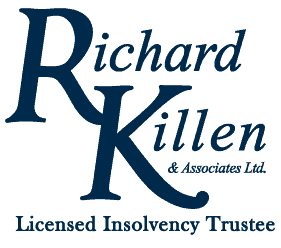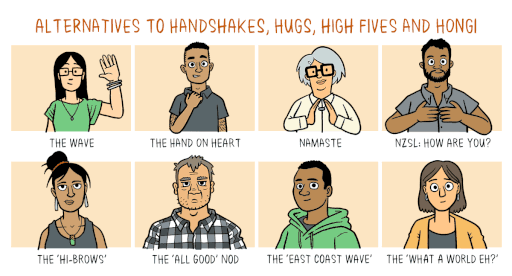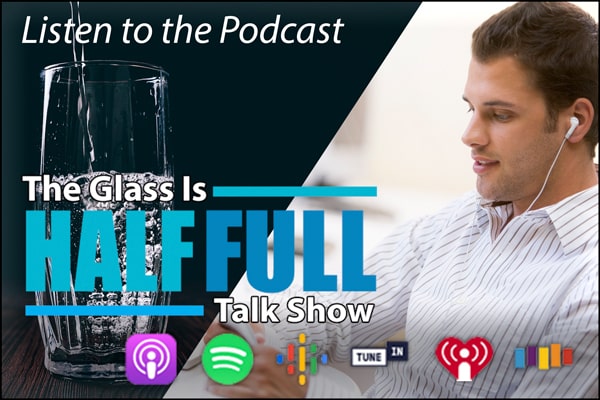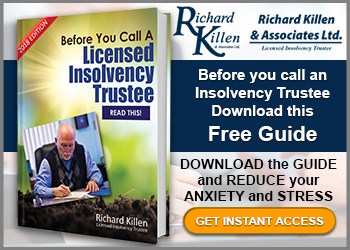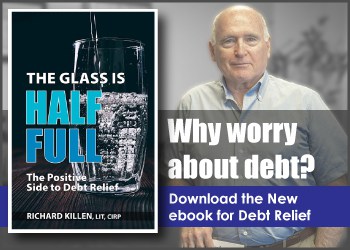Do Not Cash IN RRSP’s To Pay Taxes Owed In Ontario
Hi it’s Richard Killen it’s tax time again and some of us when we file taxes are going to owe money. And some of us who owe that money have RRSP’s.
I want to suggest to all of you if you’re in that position where you have RRSP’s and you owe money on your taxes this year, don’t cash them in until you’ve talked with us. There are options that would allow you to keep your RRSP’s and still get your taxes taken care of.
I invite you to give us a call.
Do You Owe Taxes Based ON CERB Benefits?
Hi I’m Richard Killen, you may be like a lot of people who received CERB benefits last year.
You were surprised to find out how much income tax you owe this year on all those benefits.
I’m trying to tell people for quite a while now, that shouldn’t be a real problem for you.
Give us a call at Richard Killen and Associates and we’ll discuss all the options that you can use to resolve that problem.
File Your Return by April 30, Even If You Cannot Afford To Pay Taxes Owed
Hi I’m Richard Killen, if you’re like me you’re pretty fed up talking about covid and lockdowns so, I thought we’d talk about tax returns.
April 30th if you’re weren’t a self-employed person in 2020, is your deadline for filing your taxes. If you were self-employed you got till June 15th but the important thing I want to get
across is to get your return filed by the deadline. There are penalties for not doing so.
You can avoid all that just by getting it filed even if you can’t pay it, get it filed.
How to Create a Budget with Irregular Income
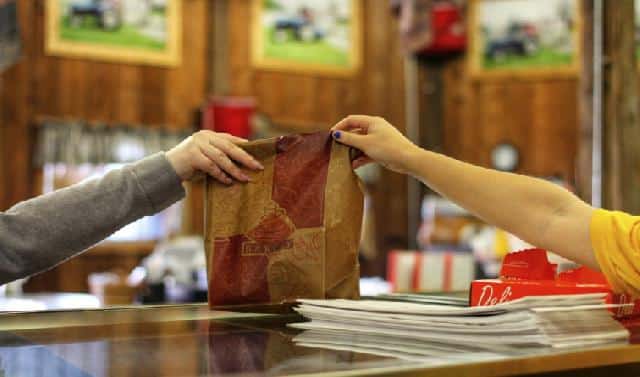
Following a budget can be challenging enough when you have a steady job that pays you a regular basic income, but can you imagine how extremely difficult it can be to create a budget with irregular income?
With a regular income, you can predict exactly how much money you’ll have coming in each and every month and you know exactly how much money you have to cover all your expenses. However, with an irregular monthly income, you have to contend with fluctuating income levels and commissions. It’s tough to plan when:
- You don’t know how much you’ll earn,
- You don’t know when you’ll get paid, and
- You don’t know how much you’ll make the following month.
This is a common scenario for people who are:
- Self-employed
- Freelancers
- Contractors
- Working on hourly rates like bartenders, waiters and waitresses, custodians
- Working on a commission basis like salespeople
- Have side gigs that change up their income every month
- When your income is reduced temporarily, for instance, because of COVID-19
If your income varies wildly depending on the day or season, here are some strategies to help you effectively budget.
Determine your baseline
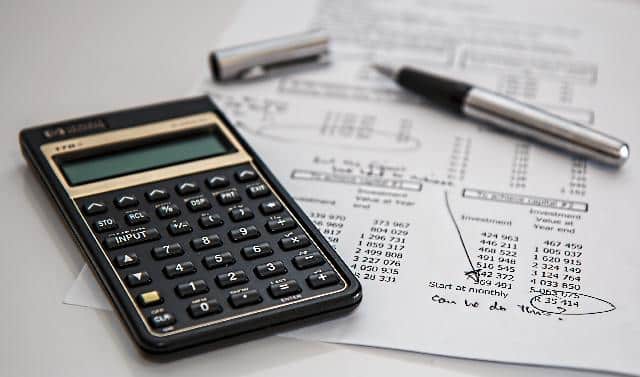
Start by adding all the money that you are certain of for the month as income. This can be money you have coming in from your side hustle or business, plus unemployment benefits you may be receiving under the COVID-19 Emergency Response Act.
Your baseline is the minimum amount you want to focus on regardless of whether you make more or you earn less, for month by month. This is the amount you will work with to cover the bare minimum expenses you need to pay for on a monthly basis.
Track your monthly spending from previous months
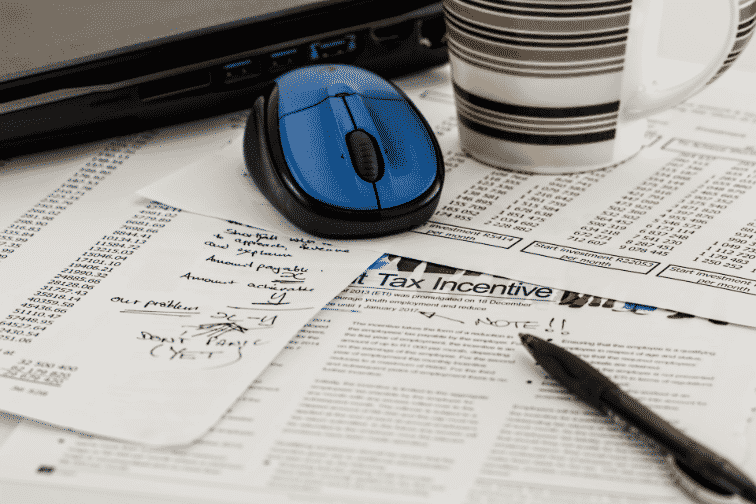
The next thing to do is make a list of your spending and bills. This step is crucial to help you know what you absolutely need to earn monthly in order to pay your bills and get by.
Itemize each expense. For example:
Create a category for Necessities — essential, ongoing monthly expenses:
- Rent or mortgage
- Utility bills
- Food and groceries
- Medical bills
- Transportation and fuel and car maintenance
- Daycare
- Taxes
- Loans and debt repayments
- Savings, investments
Create another category for Discretionary Expenses:
- Cable/television bill
- Entertainment
- Expenses for fitness, sports or hobbies
- Take out or dining expenses
- Shopping for clothing, toiletries
During COVID-19, it may be easier to cut discretionary expenses completely. Expenses for dining out, entertainment and travel won’t be necessary due to social distancing measures. This means you may have more money to assign to debt repayments and savings for the month.
Allocate every penny
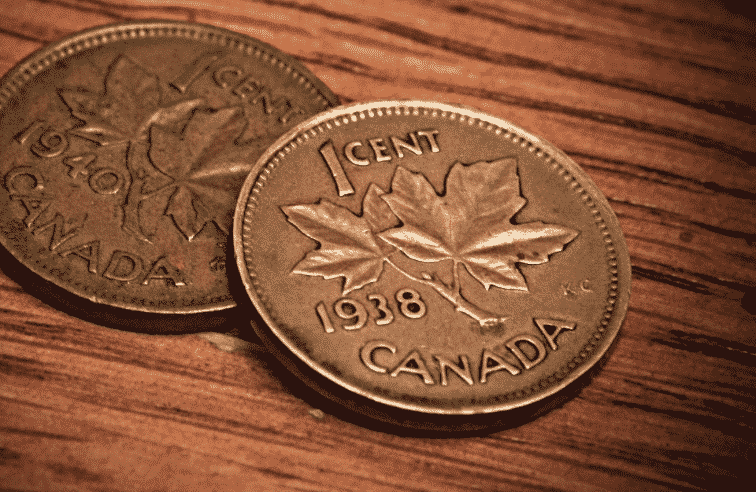
Once you’ve created your budget for necessities and added up your unnecessary expenses, you’ll know exactly how much money you need to make it through the month.
Expenses under the Necessities group are things that you couldn’t reasonably live without. So, more or less this amount is fixed. Those under the Discretionary group are the expenses that you’ll need to cut if you’re trying to make your budget fit your income.
The goal is to adjust your discretionary expenses until you’re back to living within your means.
Make sure you divide every income that comes into your necessities before anything else, otherwise you are going to run the risk of spending half of your income on discretionary items and not having enough left over for food and groceries.
Each month, repeat the process and make a new budget based on that month’s income and expenses, assigning each dollar in your budget to a particular expense.
Build your emergency fund
When you are living on an irregular income, it’s crucial to have ample savings to help fill in the gaps when bad months come along. Make sure to allocate a portion of your income into an emergency fund. If you are just starting out, it would be best to put any extra money that you may earn towards emergency savings first. Do this until you have at least three to six months of expenses on hand.

Create financial goals
If there is any extra money after expenses and emergency savings, make sure you carefully plan out what you’re going to do with it. Is it going towards paying off debt? Is it for savings for your children’s college education? Will it go towards your retirement savings? It’s important to set a goal for any excess money you may have so that you avoid the risk of blowing it.
A simple, stripped-down budget where you can see just your essential expenses, and nothing else, can be helpful in managing your spending if you have irregular income and also if you’ve experienced a job loss or if your income is reduced temporarily because of COVID-19. It can help you see exactly where every dollar is going each month and it can help you avoid unnecessary spending. When you budget with irregular income, every penny counts and there’s no room for money to slip through the cracks.
If you have trouble doing this and would like to discuss it we would be very happy to do so. Just call us at 1-888-545-5365 or email us at info@killen.ca.
If things have gotten troublesome with your debt situation, especially with this Covid-19 virus don’t hesitate to contact us for a telephone or Skype interview. We can help.
What We Can Do to Stay Safe and Healthy as COVID-19 Lockdown Eases

As Ontario and other provinces begin easing coronavirus lockdown restrictions, we’re adapting our lives to deal with the new changes the pandemic is having on our homes, schools, and work-places. We have to accept life with the coronavirus, even though it will be pretty tough to balance normal daily life with quarantine efforts.
Let’s be guided by advice from The World Health Organization: “We should be ready to change our behaviors for the foreseeable future,” they say.
Here are some ways to stay safe and healthy and protect yourself as well as everyone around you when you start to go out in public and resume life amidst COVID-19.
Wear a face mask in public places
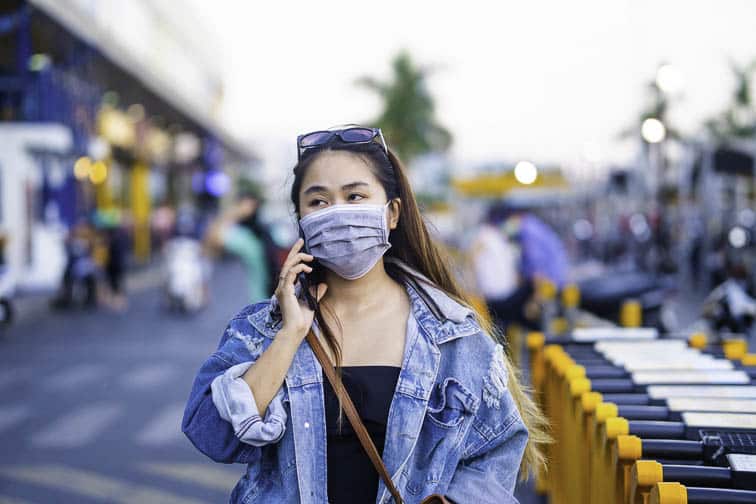
Public Health Ontario now recommends that everyone wear a non-medical mask in public to prevent transmission by people who are unknowingly infected with the virus. It’s an additional measure you can take to help cut down the spread of the virus particularly when you are in situations where you can’t always maintain proper physical distance from others.
Dr. Jessica Hopkins, medical director of health protection at Public Health Ontario she said, “When you are wearing a mask, it’s about protecting others.” The aim is to prevent transmission by people who are unknowingly infected with the virus.
Do not use medical or surgical masks because these should be reserved for health-care professionals. Popular options include, dust masks, which can be purchased from a local hardware store, reusable/washable, double-layered cloth masks with an insert for a disposable filter, or a simple scarf or bandana to cover the mouth and nose.
You should make sure that:
- The mask covers your mouth and nose, and
- Even while wearing a mask, you must continue to keep 6 feet between you and others.
Keep your distance

The CDC describes social distancing, also called physical distancing, as “keeping space between yourself and other people outside of your home.” It includes:
- Staying at least 6 feet (about 2 arms’ length) away from other people
- Not gathering in groups
- Staying out of crowded places and avoiding mass gatherings
As we begin going out in public again, make it a habit to keep six feet away from people while waiting in line at the grocery store or pharmacy, when going to a restaurant or cafe or other public places, make sure to check first if there are a number of other people who might be there and if you’d be able to ensure enough space and stay six feet away from others. If you absolutely have to go near other people, make sure to wear a mask.
Continue to work from home if possible

A work-from-home arrangement could be the new normal for many businesses, even after the COVID-19 lockdown as employers will continue to have their employees working from home. If you can limit the days you have to physically go to work, this would help lessen your exposure to the virus.
If you are travelling to your workplace you will still need to observe the social distancing guidelines and stay six feet apart from other people. In the workplace, make sure you help your place of work implement six feet social distancing as you and co-workers move around the office.
It’s important to remember that COVID-19 spreads mainly among people who are in close contact for a prolonged period, and people can spread the virus even before they know they are sick, so if you keep your distance from everyone you can avoid being exposed to the coronavirus and help slow its spread among those who come in close contact with you.
Replace hugs and handshakes with alternatives
Canadians are urged to limit close contact with each other. This includes no-handshake, no-hugging or making any close physical contact that can infect a person if they come in contact with the eyes, nose or mouth of another person.
As we start going out in public and meeting people again, let’s try to be less touchy and stop traditional greetings that involve any physical contact like hugging, high-fiving, cheek-kissing and handshaking, if possible.
Try these simple gestures that require zero physical contact:
Attribute to: Source https://thespinoff.co.nz/society/16-03-2020/the-world-is-on-fire-my-message-to-new-zealanders-on-covid-19 Authors: Siouxsie Wiles and Toby Morris
Don’t touch surfaces
An extra measure to stay safe and protected when going out in public is to stop touching shared surfaces.
Try these alternative methods:
- Use your knees, feet, elbows and knuckles instead of your fingertips to press the ‘Walk’ sign buttons in pedestrian lanes.
- Push open a door with your shoulder, hip or foot instead of your hands.
- Wear gloves if you have to tap out a PIN code or make a selection on a digital screen.
- Wrap a scarf or the sleeve of your sweater or jacket around the handle of any doors you have to pull open
- Flip on a light switch or sink faucet using your elbow or wrist.
- Use gloves or a plastic bag to sort produce and canned items in the grocery store.
The key is to avoid exposing your skin to any shared surfaces where the virus may be lingering. If you use gloves or a piece of clothing, it will be so much easier to toss your clothing into the wash rather than run the risk of using your bare hands and then touching your face. If you have to touch, make sure to use a hand sanitizer or hand wipes or, better yet, make sure to wash your hands right away so you don’t spread the virus elsewhere.

Don’t stop washing your hands
Hopefully, your hand-washing habits are deeply established by now and it will stick around even as COVID-19 lockdown eases. Remember that the goal of thorough hand washing is to minimize your risk of acquiring life-threatening symptoms, so continue to practice common hygiene, perhaps even more frequently now as you come into contact with people and common surfaces when quarantine ends. If you can’t wash with water and hand soap, use a hand sanitizer or hand wipes to break down the virus.
Don’t get too comfortable
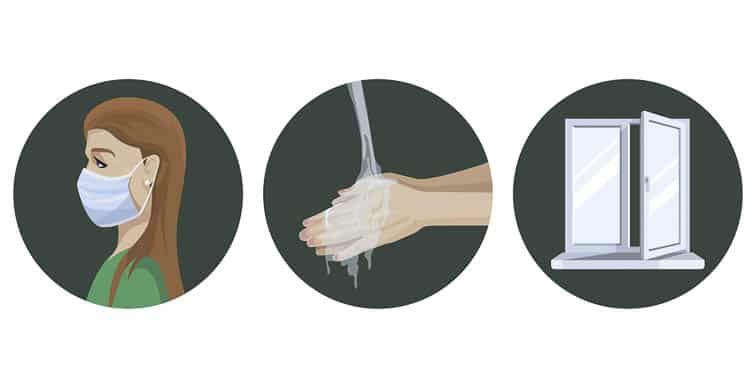
It’s important to remember first and foremost that the war against the coronavirus is not yet over. The virus is still there, and the risk of becoming seriously ill from COVID-19 won’t go away until we achieve herd immunity or have access to a vaccine.
Already some countries across the world who have started lifting coronavirus lockdown are reporting new infection peaks. If we’re not careful, Canada could see a second wave of infections that could be even worse.
Our health and government officials are adamant in reminding us that even though some lockdown restrictions may loosen, physical distancing rules and guidelines still apply. This means that we still need to protect ourselves and others and do our part in limiting the spread of the virus as we all slowly work on trying to make a new life while facing the persistent threat of the virus around us.
As COVID-19 lockdown eases and many of us are still fearful of going back out — let’s truly take care of one another and let’s all do our best to continue to stop the spread. These simple ways will help to protect you and everyone around you and keep you safe from the virus.
And one last thing. If your finances have become hard to manage with the Covid-19 lockdown why don’t you contact us for a FREE telephone or teleconference interview.
1-888-545-5365 or info@killen.ca
More Ways to Cut Spending During the COVID-19 Lockdown
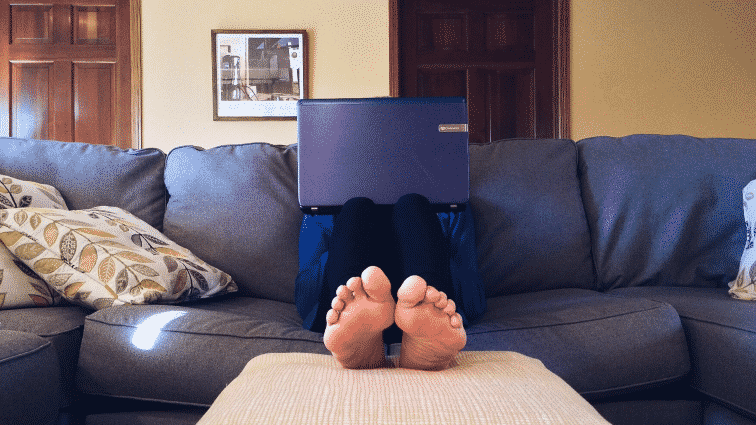
As you go through this COVID-19 emergency, you’ve probably already trimmed your budget and cut spending to the bone in an effort to save money and stretch that much needed dollar. You’ve probably already done some of these:
- Deferred mortgage and credit card debt payments,
- Postponed payments for utility bills,
- Trimmed down your subscriptions and forsaken online shopping.
- Chances are you’re eating out less often and also aren’t spending any money on gas or public transit.
So what else is left to cut?
Here are some more money-saving ideas to slash your budget:
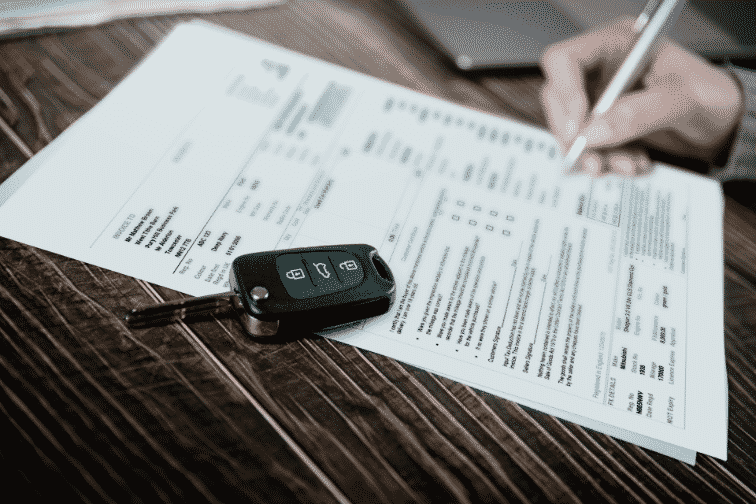
Reduce Car Insurance Costs
If your cars are in your driveway more than usual because of the coronavirus lockdown, you might want to consider ways to save money on your auto insurance policy.
One option to save money is to suspend your auto insurance coverage. This essentially pauses your policy but doesn’t cancel it. It will give you two advantages:
- You won’t have to pay for insurance while your car is out of use
- You can avoid a coverage lapse, which could increase your future rates
Not all companies allow customers to suspend coverage, some might allow it only in certain situations. It’s best to check with your insurer to see if this can be applicable to you.
Another way to save money is to reduce your coverage. Consider cutting back coverage that you aren’t using right now, particularly on most of the driving-related insurance like travel coverage or roadside assistance.
Cutting back coverage is a good alternative instead of cancelling completely:
- You don’t have to pay for unneeded insurance while your car is out of use.
- You can avoid a coverage lapse, which could increase your future rates.
- If you keep a comprehensive insurance policy, your car will be covered for non-driving problems like fire, animal damage, vandalism and theft even with reduced coverage.
To start, check coverage requirements mandated by your city or province. This will determine what coverage you can consider reducing on your auto insurance.
Many insurers are also giving refunds to customers because of premium reductions. If you’re driving less often now on a daily basis or you’re no longer commuting, this lowers your risk exposure and could result in a cheaper policy and a lower premium. Be sure to reach out to your insurance company to inquire about these possible savings.
Make That Switch

If you have the time to shop around, it’s possible to get better deals that can let you save money on household bills. Start with your energy bill. You may be able to save money on your energy bill simply by switching energy providers. Some provinces, such as Alberta, Ontario, British Columbia, Manitoba and Saskatchewan, allow you to switch suppliers. It’s easy, find out how to switch energy suppliers.
LowestRates.ca is a great resource where you can compare rates on auto insurance, home insurance, mortgages, credit cards, loans, and even loans to help you save money on most common household expenses.
Take Advantage of Free Apps & Services
Many paid apps, which usually have a seven-day trial period, are offering coronavirus discounts and free trials for the duration of lockdown. So while we’re stuck at home due to stay-at-home orders, we can download these apps and keep our mind off of coronavirus with free movies, TV, music apps, concerts, internet, fitness sessions, classes, etc. – without breaking our budget.
Check out some of these:
- ca – Watch TV and movies including HBO, Starz, Super Ecran and Letterkenny for free for 30 days. Sign up for the extended offer directly on the Crave apps for Apple and Android devices.
- Down Dog – The highest rated yoga app for practicing yoga at home is offering some of their wellness routines completely free.
- Headspace – This meditation and sleep app is offering a collection of free plans to non-paying customers to help ease the stress and fears caused by COVID-19.
Just make sure to cancel once free trials are over if you don’t want to continue with a service so you won’t be charged any money.

In this time of uncertainty, with so many people losing jobs and we are all worried about our budgets, we need to be proactive and explore ways in which we can save money, not just for now but for the long-term. We may need a complete change of spending habits and living below our means, a new way of living that we can stick with once we get on the other side of the pandemic.
If you need help with your money and debts, take the opportunity to speak with us about your financial situation. We will review your monthly budget and provide you with information and guidance to help you make informed decisions about your finances.
N.B. Whatever you do, make sure you do not deplete your savings or cash in your TFSA or RRSP without talking to us at Richard Killen & Associates first.
You can contact us by telephone at 1-888-545-5365 for a free consultation now. Or you can email us at lawrence@killen.ca or brampton@killen.ca , or simply check out our website at www.rkillen.ca. We are committed to fully serve you in this time of uncertainty.
Best and Worst Ways to Get Money Quickly in a COVID-19 Financial Crisis

The coronavirus pandemic has already cost over a million Canadians their jobs, leaving many in a tight spot and wondering how to pay their bills. Many were caught unprepared for the swift financial blow. Nearly 40 per cent of Canadians under the age of 55 who have lost their job have almost no capacity to pay for their bills without an income and have only one week or less of savings to cover emergency costs like food and rent, according to this Global News Ipsos poll.
With many people filing unemployment claims since the pandemic lockdown, we’ve seen how cash is vital in these unprecedented times. Money — that is, liquid cash — is what enables many of us affected by this global health crisis to survive when our income or savings have been drastically reduced or totally wiped out. In crisis situations like this pandemic, even a small amount of cash on hand could actually save lives.
The Canadian government has put out a full range of tools to support the flow of credit to households and businesses in response to the COVID-19 crisis. However, we need to keep in mind that there are pros and cons to nearly every type of loan. So, when you’re searching for ways to come up with cash in this emergency, you’ll need to weigh your options carefully and also think about your future financial health when this crisis is over.
Kelley Long, who is a Chicago-based certified financial planner and CPA, offers this advice,“You want to try to protect your credit and make it as easy as possible to recover once things get back to normal.”
“That can mean selling possessions you don’t need instead of taking out a payday loan, or using a zero-percent credit card instead of withdrawing from your retirement account,” Long adds.
Let’s look at some ways to get money quickly in this economic crisis and weigh in the best and worst points of each:
Avail of Unemployment Benefits

Apply for EI and COVID-19 emergency benefits right away if you’ve been laid off. Employment Insurance (EI) is for permanent residents and citizens who recently lost their job. The COVID-19 Emergency Response Act includes emergency benefits for those who don’t qualify for EI, such as CERB payments which will provide unemployed workers with $500 a week for up to 16 weeks.
- Apply for EI here
- Apply for COVID-19 emergency benefits through either Service Canada or the Canada Revenue Agency (CRA). Do not apply to both.
Be prepared for long hold times and include some room in your budget for any delays or glitches in receiving these support payments. Also, watch out for scams such as fraudulent texts and emails or calls asking for personal information or account details. Banks and government agencies will never send emails, texts, or call you asking for personal information or account details, or advise you of your benefits particularly if you have not applied for these benefits.
One important thing to be aware of: Government benefits like CERB are taxable. So, be prepared in future tax seasons.
Tap Into Your Long-term Savings
There’s no shame in withdrawing money from a long-term savings plan like your Tax-free Savings Account (TFSA) or your Registered Retirement Savings Plan (RRSP) to deal with a short-term crisis, especially if you have no emergency savings or have no savings at all.
If you’re going to withdraw, keep in mind:
- Money in a TFSA can be withdrawn at any time with no cost and that money will be tax-free.
- You can withdraw from your RRSP anytime as long as your funds are not in a locked-in plan.
- Money withdrawn from an RRSP is taxable. One, you’ll have to pay an immediate withholding tax upon withdrawal and, second, when filing your taxes at the end of the year, you must declare the full amount as income and it will be subject to income tax at your marginal tax rate.
- You can save on taxes if you withdraw from a spousal RRSP or a Group RRSP.
Both are ways to get cash without incurring potentially expensive debt, however RRSP money may cost you a lot in taxes.
Unsecured Line of Credit

A line of credit or LOC, also known as a revolving credit, is a good source of emergency funds. It’s like having money in the sense that you can use a predetermined credit limit at any time and you can continuously borrow from it provided you do not exceed the limit allowed.
In an unsecured Line of Credit there is no collateral required, so you’re not putting anything of value at risk.
An unsecured LOC has several advantages to personal loans and credit cards:
- Compared to a loan, you only pay interest on the money you actually use.
- An LOC is reusable, and you can borrow any amount again and again when you need it as long as you stay within the limit.
- You can use as much or as little as you want while staying within limit.
- The rate of interest on LOCs is much lower than on credit cards and those of personal loans.
The biggest disadvantage is if you don’t regularly pay it off, interest will pile up and add up to a large amount and this may get you into serious debt and financial trouble.
Home Equity Line of Credit
If you are a homeowner, this can be a lifeline.
A Home Equity Line of Credit, or HELOC, is a revolving amount of credit that is guaranteed by your home.
- Interest rates are considerably lower than that for unsecured lines of credit because your property is there as collateral.
- You can borrow large amounts of money depending on the equity in your home.
- HELOCs can be used for anything just like cash.
Term Loans
Unlike lines of credit, term loans have to be repaid over a set period of time with interest charges. The interest rate is somewhat similar to an unsecured line of credit. A term loan is a good option to consider if you need to get a large amount of cash up front and repay it in smaller amounts for a longer repayment term.
0% APR Credit Card
Many credit card companies are offering 0% APR periods of one year for new purchases to help their customers get through these difficult times. The advantages:
- You don’t have to open a new credit line
- 0% APR for a year is a huge help and might be enough to get you through three to six months of unemployment or emergency expenses
Call your card provider to ask if this is something that can be right for you.
Delay and Defer

Preserving your cash is a top priority during these financially struggling times and even if that can affect your plans to pay down your debt, that’s okay for now. Make use of deferral payment provisions set up by your bank, credit card provider and mortgage lender. These were created especially to help those who have been financially harmed by the coronavirus pandemic. If you have student loans, the COVID-19 Emergency Response Act includes a provision on deferral of student loan payments for six months and you will not be charged interest or penalties for this. Contact each of your creditors and find out which payments you can defer and for how long.
If you don’t have cash and you’re worried, stop paying that loan for the months that you can and be sure to talk to your financial institution first. This gives you some available cash that you can use to meet your urgent basic needs. In normal times it’s not something we would recommend you do, but in times of survival it can be a big advantage as you won’t have to worry about being charged interest, penalties or fees for the months you skip payments. The drawback is the payments pile up and may become due all at once, so make sure you make repayment arrangements with your lender if you need more time to pay.
Payday Loans

If you have been laid off and have no more paycheck for the next months, this may no longer be an option for you as lenders will require you to provide proof of employment, like a paystub to avail of this.
If you still have regular income, we recommend making this option your very last resort even in a difficult financial situation.
Some things to watch out for:
-
- Payday loans are short-term loans which you have to pay back from your next paycheck.
- The loan is an unsecured loan, but you’ll have to provide a post-dated check for the total loan amount including fees or you’ll have to fill out a form that will allow the lender to withdraw the total loan amount directly from your bank account when it becomes due. If you can’t pay when the loan is due, the lender can help itself to the contents of your bank account.
- Payday loans are an expensive way to borrow money compared to other ways of borrowing money. You can only borrow up to $1,500 and can be charged bi-weekly interest rates of up to 25% or 652% in Annual Percentage Rate (APR).
The biggest disadvantage is that payday loans are a debt trap with extremely high fees and interest rates. If you can’t repay on time you’ll face more fees and interest charges and it can put you in an unending cycle of debt.
Try to find an alternative, and if you can’t, make sure you borrow only as much as you can afford to pay with your next paycheck.
Credit Card Cash Advance
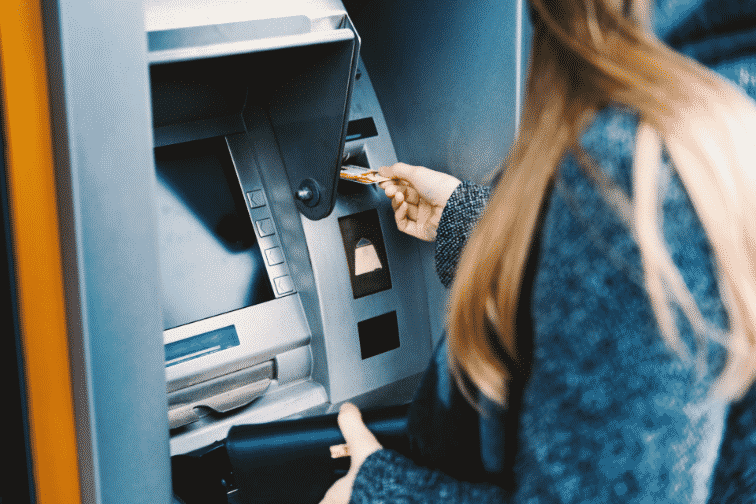
Like payday loans, a credit card cash advance comes with high interest and high fees. Additionally, if you max out your card, it could negatively affect your credit score. If you have a credit card with a low or 0% promo rate, you can make use of this to make a cash advance instead of a regular credit card.
These are scary times and millions of Canadians are in dire need of cash. Although there are many ways to get money quickly to help get you through this COVID-19 crisis, you still have to exercise some control in using any type of credit as this is money that you’ll still need to pay back with interest. Take time to research each way to borrow money and carefully weigh the pros and cons of each so you can avoid short-term decisions that can hurt your future ability to get credit.
To sum it all up.
As you can see, there are many, many ways of dealing with the financial problems resulting from Covid-19 and the government lockdowns. Probably at least one of them will be available to you. But there is one important point I’d like to make: before you go using up your savings or depleting your RRSP or cashing in your TFSA or even incurring additional debts, please consult with a Licensed Insolvency Trustee like Richard Killen & Associates and inform yourself of the complete picture. It may be one of the smartest moves you ever make.
So call us. We’ll be happy to answer all your questions and provide you with information you need during this difficult time. Contact us by telephone at 1-888-545-5365 for a free consultation now. Or you can email us at lawrence@killen.ca or brampton@killen.ca , or simply check out our website at www.rkillen.ca.
How to Deal with Creditors during the Coronavirus Financial Crisis
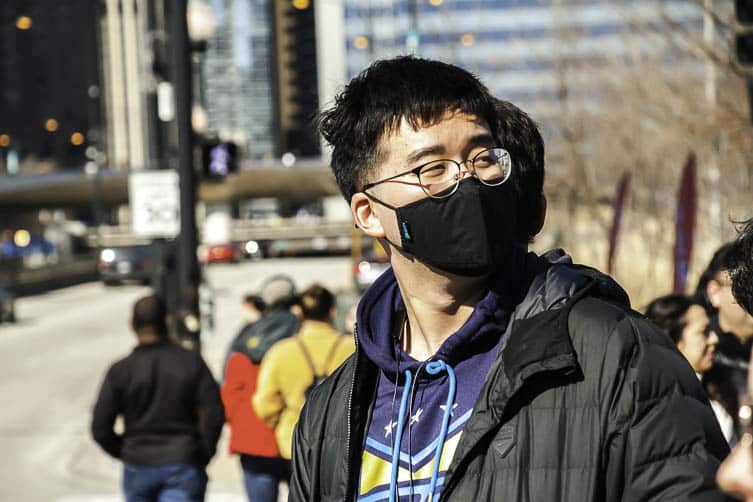
If you are one of the hundreds of thousands of Canadians who only have CERB support payments to get you through this unprecedented time, and you have monthly debt payments to keep up with, the fundamental question is: How do you deal with creditors in this coronavirus crisis if you are no longer able to pay meet your debt payments?
Here are several things you need to know when making payments becomes hard or impossible:
- If you miss a monthly debt payment one of the first things you need to know is that your creditors have the right to take action to collect payment from you. This means they can call you, take you to court, sue you, and eventually garnishee your wages.
- Creditors will try to collect from you directly as soon as you miss a payment. They will begin with a simple overdue reminder notice. If you miss a monthly payment on your credit card, for example, your bank or credit card company will give you an overdue notice on your monthly statement. If it remains unpaid, this will escalate to phone calls, emails, and other forms of direct contact as long as the creditor is dissatisfied with the situation as it stands.
- You can expect to receive automated late payment notifications as these are system generated messages. It’s important to be aware that creditors will likely continue to send out written notifications of late payments so they can take legal action against you as soon as the courts open.
- If you have generally been current with your payments the good news is that other than the notice on your next statement, you will not likely see collection activities starting immediately after your first missed payment.
- If you have not responded to late payment notices or made a payment on your debt, and your debt is 90 days past due or more, lenders may decide to refer you to a collection agency. Because of COVID-19, this is not likely to happen in the immediate future as many collection offices are shut down or working with limited staff.
- If delinquency remains unresolved too long, the creditor may take you to court (sue you). This will involve filing a statement of claim with the court and serving this document on you..You will have 20 days to dispute the claim, which gives you time to deal with the situation. This too is not an issue right now as the courts are closed, which means creditors cannot start filing any legal action until the courts open again. But they can start the ball rolling in that direction now, so when the court opens for business again, things will move quickly.
- If you receive collection calls and you can’t pay due to a job loss from COVID-19, you should always simply tell the truth. Tell the collector that you’ve been laid off work, and are not able to make payments right now. Though you may run into someone where the compassion gene skipped his or her generation, most collection agents will be prepared to work with you rather than confrontationally against you.
- If a creditor has a garnishee order filed against your wages and your only income comes from CERB support payments from the government, don’t worry, these support payments cannot be garnisheed or applied to debt repayments. Creditors cannot obtain a court order to apply a wage garnishment on social assistance payments, government pensions or support payments. Garnishees apply only to employment income.
- However, if you have a bank account and owe money to that bank, on a credit card or a loan for example – then that bank can take payment out of your account without a formal garnishee and without your permission to apply to any overdue payment. To avoid this situation it would be a good idea never to do your banking where you owe any money. If you feel vulnerable right now due to the Coronavirus and want to change your deposit bank you may consider opening an account at an online bank.
- Finally, if you are in need of protection from your creditors’ efforts to force payment through garnishment or other collection activity, you do have the right to use the Bankruptcy and Insolvency Act and do a bankruptcy or a consumer proposal. In order to explore that option to see if it’s the right one for you, a meeting with a Licensed Insolvency Trustee like Richard Killen & Associates Ltd. will be the next step. During coronavirus time this is now possible by telephone or teleconference.
Communicate with your Creditors
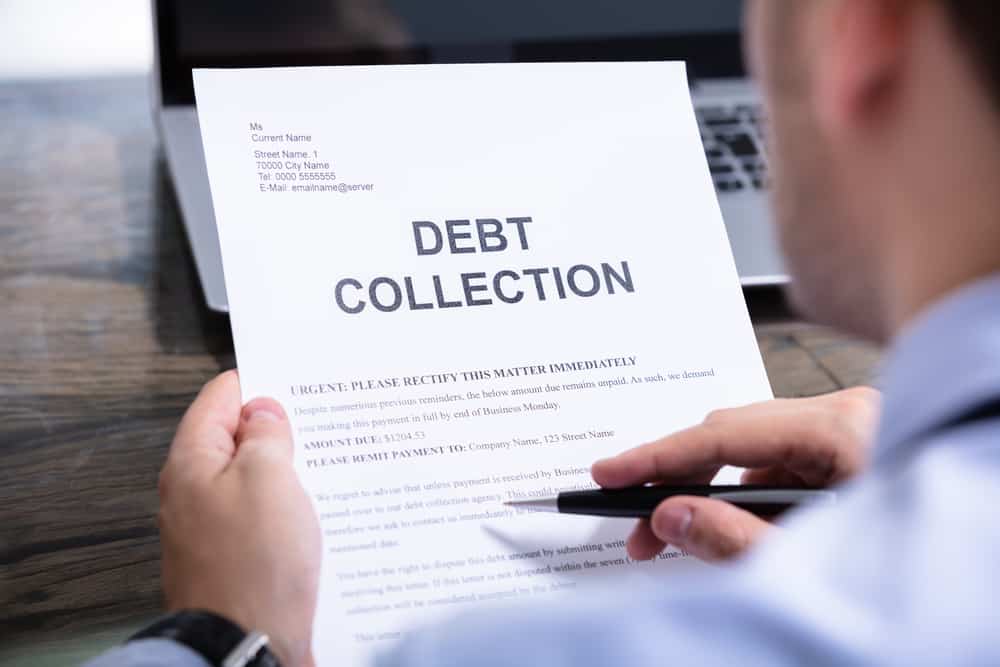
The best way to deal with creditors during this coronavirus financial crisis is to talk to them. It’s crucial that you take action quickly and make the first move to contact them and find out what your lenders can do to help you. The key is to act quickly, as soon as you realize you may miss a payment.
The worst thing you can do is ignore your creditors. Lenders won’t know that you need help if you don’t tell them. Payment deferrals, loan extensions, revised terms or even reduced interest rates are all things your lenders can offer as a temporary solution. But they’ll need to assess your financial situation first. They will take into account your payment history, how soon you seek help and your recent credit behaviour and a number of other factors. If you’ve waited too long and have slipped too far behind with your payments they may not be able to help at all.
It’s important to keep your creditors updated with your circumstances, especially if your finances have been impacted by the COVID-19 crisis and you’re not able to keep up to date with your debt payments. As soon as you let your creditors know you need help, they will try to find ways to help you. So, don’t be afraid to reach out to them.
If you need help to communicate with your creditors about your debt, particularly in knowing what you can and cannot say, talk to us here at Richard Killen & Associates and we can guide you on how to go about dealing with them. We can also advise if you need to contact a creditor in writing. We can also contact your creditors on your behalf and negotiate a new arrangement to make debt repayments affordable for you.
Call us at 1-888-545-5365, or email us at lawrence@killen.ca or brampton@killen.ca and we can set up a free initial consultation on the phone or by email or video conference with you online. We are committed to providing full services in the midst of the coronavirus emergency.
How to Restructure Your Finances in a Covid-19 Crisis

The COVID-19 crisis continues and with the lockdown extended many businesses will continue to be closed and people will be out of work longer. While many Canadians are fortunate to still be working, the threat of suddenly getting laid off from work looms for many as the future is still uncertain. Understandably, everyone is worried about their finances. No one can escape, one way or another we all feel the economic impact of COVID-19.
Our government and those in positions of authority are doing what they can to help. We need to be proactive and help ourselves as well. One of the things we can do right now as we are facing unprecedented times is to review our budget and see where we can cut back expenses — let’s not wait when we have already lost our job or if our next paycheque is reduced.
Here are some suggestions on what you should do to restructure your finances in this difficult time:
Set your current budget differently
If you don’t have emergency savings right now, it might be a little late to save up. What you can do now is restructure your current budget into an emergency budget. We do not know the long term financial impact this pandemic will create, so we need to set up a new budget based on our current financial circumstances while anticipating any future financial turn of events. You may need to consider a reduced level of income and possible changes in monthly expenses.

Sit down with all family members and have an open discussion on ways to reduce expenses in the household so you can have the money saved and used for important essential expenses.
Some areas to look into:
- Cancel monthly expenses for gym memberships, newspaper and magazine subscriptions
- Put expenses for transit passes and parking permits on hold if possible
- If you have two cars and are not using both at this time you can find out how you can reduce extra vehicle insurance — it’s possible to save several dollars a month by temporarily cancelling the insurance or choosing to remove or reduce liability and collision.
- Remove special channels from your cable package to reduce the total amount you have to pay each month if you can’t cancel completely.
- Reduce spending on buying in-app items, downloading games, music or pay-per-view movies, or other non-essential shopping online.
Many of your expenses will be less or different than before the COVID-19 crisis hit — fuel costs will be minimal as you may now be working from home, daycare expenses can be omitted for now because of school closures, expenses for entertainment and recreation like eating out and watching movies can be eliminated for now because of the lockdown.
Use a budgeting spreadsheet or budget workbook and start outlining all of your expenses. Just skip over the income section if you don’t have any now or aren’t sure how much you’ll actually have, and start listing the most important expenses first — rent, food, and medicines are your primary basic needs now, but also account for immediate utilities like power, water, gas, and communication needs like internet and phone bills.
If you don’t have enough money to cover all utility expenses, contact each service provider to see how you can reduce what you need to pay by at least 10 per cent. Many utility and communication providers are offering extended and flexible payment arrangements. See if you can scale back your service plans temporarily to save a little on each bill. Be careful of fees and interest charges that may be hidden in the revised terms. Any flexibility with your payments that you can find right now, take it so you can stretch your money for as far long as you possibly can and, if possible, you can start putting some of it away in case things get worse.
Halt RRSP and TFSA contributions

In any situation that money is tight and you’re forced to choose between paying bills and saving, always pay your bills first. While it’s important to save for the short term as well as the long term, it can be difficult to set aside money for your RRSP and TFSA savings right now with your income gone or drastically reduced. Experts say that the best thing you can do right now is to leave your RRSP and TFSA savings alone. Continue putting money into them if you are able to, if you cannot just leave them as is.
You may find the need to tap into your RRSP and TFSA savings to tide you over during this rough financial patch, but experts say the best thing to do is leave them untouched. In many ways, it can be difficult to access savings that are in a TFSA with many banks closing its doors to customers now, and you will also most likely face penalties for withdrawing money from an RRSP before retirement.
If your current income permits you to save a little bit every month, the best thing to do under these unpredictable circumstances is to stash it away in a high-interest savings account even if the interest earnings go down. All that matters right now in these uncertain times is to have money set aside that you are able to quickly and easily withdraw in case of an emergency.
Reduce loan repayments
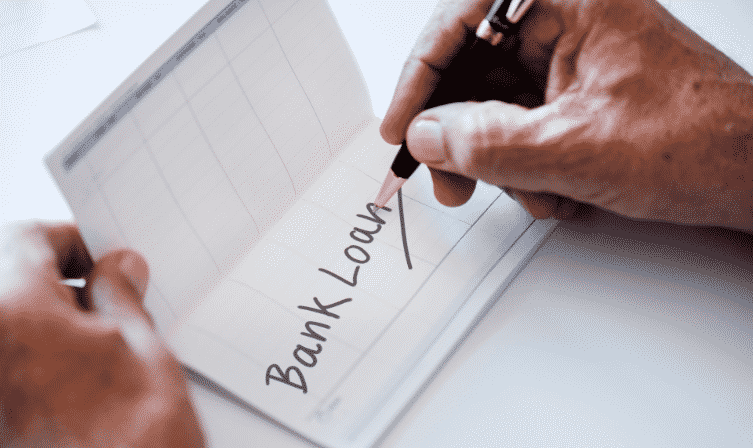
Loan repayments will be an important part of your emergency budget, and if you’re still able to make full repayments on your loans, then you should continue to do so. However, if you’re in survival mode and your situation is at a point where you need to choose between putting food on the table and paying down your debt, then your priority should be to meet your immediate need for food. Make the minimum payments on your loans if you can, and make alternate arrangements with your lenders as soon as possible to keep debt repayments on track.
Many of Canada’s banks and lending institutions have all announced that they will review requests for assistance on a case-by-case basis. This assistance may come in the form of mortgage payment deferrals, loan extensions, revised terms or even reduced interest rates. What your lenders will be able to offer you will largely depend on several factors:
- what you need help with,
- your payment history,
- how soon you contact them, and
- your most recent credit behaviour.
A critical step here is to contact your lenders as quickly as you can, before you even miss a payment. If you think there is a possibility of losing your job in the near future, or if your income has been reduced and you realize you can no longer afford to make the payments, talk to your creditors immediately and they will be in a better position to help you.
Also keep in mind that any revised arrangement on a loan means new terms and conditions, so make sure you understand any revisions made. Another thing to remember — deferring a loan payment only means skipping the payment for now and paying it at a later time, it does not mean that the debt is eliminated. You will still have to pay, and if you’ve not made any arrangements with your creditors these payments will add up all at once once the extension period is over. And don’t forget that if you get to skip a payment it doesn’t mean your interest charges were skipped, too. The interest accumulated even with the payment skipped.
Seek advice to ease the uncertainty. Keeping a roof over your head and food on the table is the most important thing right now, even if it means reducing debt payments and savings.
However, If you’re facing looming debt problems due to COVID-19 and are worried about how it will play out, the best thing to do is to seek help from a Licensed Insolvency Trustee (LIT) like Richard Killen & Associates Ltd. We will review and assess your current financial situation and give the best advice on how to deal with your finances in this COVID-19 emergency.
We can also get involved on your behalf. We can help you restructure your entire relationship with your creditors. Sound advice from a LIT can be critical in helping you find the best option and empower you to make the best decision for you and your family at this time of crisis.
We at Richard Killen and Associates remain committed to help you in this global health emergency. If you need to talk with us, contact us anytime at 1-888-545-5365, or email us at lawrence@killen.ca or brampton@killen.ca and we do the free consultation on the phone or by email or video conference online. You don’t have to spend the next numerous weeks worrying about the future.
Is Your Canada Emergency Response Benefit (CERB) Safe from Wage Garnishment

The Canadian government has created the COVID-19 Emergency Response Act in response to the COVID-19 global crisis. Under this Act, workers all across Canada who have lost their income from the COVID-19 pandemic will receive financial support payments in the form of the Canada Emergency Response Benefit (CERB). In fact, as of this writing, CERB payments are now being released and many of our fellow Canadians are starting to see this in their bank accounts. The CERB payments will provide $2,000 a month for up to four months.
The CERB covers millions of suddenly unemployed workers, which includes those who have lost their jobs, are not being paid due to COVID-19, those who have become sick or are quarantined and cannot work because of the coronavirus outbreak, as well as people who are taking care of someone who is sick with COVID-19 and working parents who must stay at home to care for their kids because of school closures due to the COVID-19 lockdown. The CERB financial support is also available to self-employed and contract workers not eligible for E.I.
Under the Act, families with children will also be provided financial assistance of $300 increase per child only for the year 2019-2020 through the Canada Child Benefit (CCB), which will be given in the scheduled CCB payment in May.
Can CERB Payments Be Garnished (seized by a creditor)?
For those who’ve had a wage garnishment on their salary before losing their job, and are qualified to receive these support payments, you might be wondering whether the garnishments will continue and if these benefits are subject to a garnishment too. Additionally, can CCB be garnished too?
The general answer is no, but there is a specific exception to be careful about.

The COVID-19 Emergency Response Act, under which the Canadian Emergency Response Benefit (CERB) and the temporary increase of the Canada Child Benefit was created, states the following:
- These support payments are not considered income or property in bankruptcy.
- These support payments cannot be assigned or given as collateral for a loan.
- These support payments cannot be garnished.
- These support payments cannot be kept by the right of set-off by the government for government debts.
To sum it up, under the COVID-19 Emergency Response Act, CERB payments as well as the temporary additional amount from the CCB cannot be garnished as they are considered financial assistance provided by the government and are meant to help you through this difficult financial time. These support payments do not fall under income payments, which are regular payments made by an employer to an employee. These support payments should solely benefit the recipient, not anyone else, which in the case of a wage garnishment, would benefit the lenders. Therefore, even though you have a wage garnishment in effect, you are allowed to keep the full amount you receive from your Canada Emergency Response Benefit and CCB one-time increase.
If a lender or a debt collector threatens you with a wage garnishment and attempts to collect money from your benefit payments they will be unable to do so. Thus, garnishment of wages in Canada can only be deducted from the money you make with your job, and thus requires the your employer’s cooperation.
The exception – when these support payments get deposited into your bank account they are fair game for seizure by your creditors. Once it’s in the bank it is no longer covered by the Act’s protection. It is just money in the bank.
Now a creditor (other than CRA) has to get a judgment against you first, from the court. But then they can execute the judgment by seizing money from your bank account. CRA can do the same thing without bothering to go through the courts by suing you.
One exception to what was said above is if you the money goes into your bank account with Bank A and you also owe Bank A on a line of credit or credit card or personal loan. They can seize your deposit by going to court first.
Talk to a Licensed Insolvency Trustee If You Are Worried About Creditors
As the coronavirus shutdown leads to layoffs across Canada, we see unemployment rising and unpaid debt accumulating. Fortunately, you can rely on your Canada Emergency Response Benefit (CERB) support payments to fully provide a safety net during the COVID-19 crisis, at least for a few months. So, be smart with your money during this challenging economic time.
But, if you are worried about a possible garnishment order from your creditors, especially if you start to fall behind on your payments during this period of health crisis, talk to us and we can provide you with the best information you can get on how you can best deal with wage garnishment in Brampton. All your options, including of course what they call your non-statutory options: bankruptcy and proposals.
We at Richard Killen & Associates are committed to serving you throughout this COVID-19 global emergency. We are still here to offer you all our services: free consultation, debt counselling, and, of course, going forward with a bankruptcy or proposal if you decide that’s what you need to do.
You can contact us by telephone at 1-888-545-5365 for a free consultation now. Or you can email us at lawrence@killen.ca or brampton@killen.ca , or simply check out our website at www.rkillen.ca.
Above all, stay safe.
